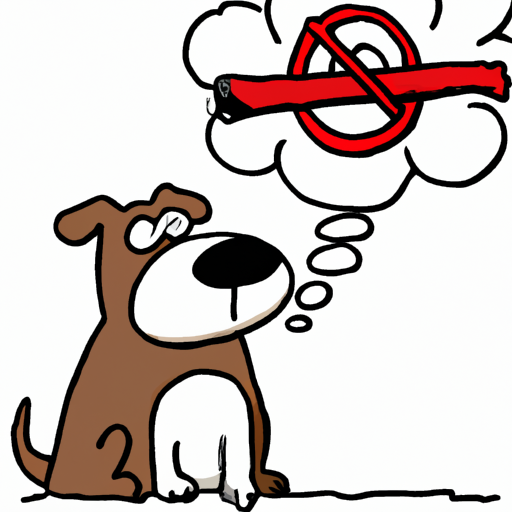As caregivers to our beloved furry friends, we do everything in our power to ensure they are happy, healthy, and safe. However, one popular pet product might be putting your dog at risk: rawhide. This article delves into the reasons why rawhide can be harmful for dogs and what alternatives you can consider for your pet’s chewing needs.
Table of Contents
Key Takeaways
– Rawhide is a by-product of the leather industry that poses several health risks to dogs.
– Choking, digestive blockages, and exposure to toxic chemicals are some of the dangers associated with rawhide.
– There are safer alternatives to rawhide that can satisfy your dog’s need to chew.
What is Rawhide?
Rawhide is a by-product of the leather industry. It’s made from the inner layer of cow or horse hides. During processing, the hide is cleaned and cut or ground. Then, it’s pressed into chewable dog treats of different shapes and sizes. Rawhide is popular because it’s cheap, long-lasting, and dogs seem to love it. But despite these benefits, rawhide poses several health risks to dogs.
Why is Rawhide Dangerous?
There are three main reasons why rawhide can be harmful to dogs: the risk of choking and digestive blockages, the exposure to toxic chemicals, and the potential for allergic reactions.
-
Choking and Digestive Blockages:
Rawhide chews can become a choking hazard if your dog bites off large pieces that could get stuck in their throat. Even if they manage to swallow these pieces, they can still cause blockages in the digestive system. Blockages often require surgical removal and can be life-threatening if not treated promptly. PetMD provides more details on how rawhide can cause choking and digestive issues in dogs. -
Exposure to Toxic Chemicals:
The production of rawhide involves several processing stages. During these stages, the hides are treated with chemicals to remove hair and other unwanted parts. Some of these chemicals can be harmful to dogs. There are also concerns about rawhide products imported from other countries, where manufacturing standards may be lower. -
Potential for Allergic Reactions:
Some dogs are allergic to rawhide, which can result in symptoms like diarrhea, vomiting, and skin irritations. If your dog shows any of these symptoms after chewing on rawhide, it’s best to remove the product and consult your vet.
In addition to these dangers, constant chewing on hard rawhide chews can also lead to dental issues, like broken teeth and irritated gums. OneTopDog provides an in-depth look at the risks associated with rawhide chews.
Safer Alternatives to Rawhide
While rawhide might not be the best choice for your dog, there are plenty of safer alternatives available. Here are a few options you can consider:
-
Bully Sticks:
Bully sticks are made from 100% beef muscle, making them fully digestible and safer than rawhide. They also last a long time, which is great for dogs who love to chew. -
Antlers:
Deer and elk antlers are popular chew toys for dogs. They’re hard, long-lasting, and packed with nutrients like calcium and phosphorous. However, because of their hardness, antlers might not be suitable for aggressive chewers as they could potentially break teeth. -
Dental Chews:
Dental chews are designed to clean your dog’s teeth while they chew. They’re softer than rawhide and antlers, reducing the risk of dental damage. Dental chews also come in different sizes and flavors, so you can find one that your dog will love. -
Rubber Toys:
Durable rubber toys like the Kong are great for heavy chewers. You can even fill these toys with treats or peanut butter to keep your dog entertained for longer.
Remember to always supervise your dog when they’re chewing on any toy or treat. No matter how “safe” a chew is touted to be, there’s always a risk that your dog could choke on a piece that breaks off.
If you’re looking for more information on safe chew toys and treats, OneTopDog has several articles that can guide you in making the best choice for your pet.
Frequently Asked Questions
Q: Can rawhide kill dogs?
A: While not all dogs will have issues with rawhide, there’s a risk of choking and digestive blockages, which can be life-threatening. It’s best to avoid rawhide and opt for safer alternatives.
Q: Are there any safe rawhide chews?
A: Some brands claim to produce safer rawhide chews that are made without harmful chemicals. However, these chews can still pose a risk of choking and digestive blockages.
Q: What can I give my dog instead of rawhide?
A: There are many safe and healthy alternatives to rawhide, including bully sticks, dental chews, antlers, and durable rubber toys. You can find more information on these alternatives here.
In conclusion, while rawhide chews might seem like a good way to satisfy your dog’s natural urge to chew, they come with several potential health risks. As responsible pet caregivers, it’s our job to be aware of these risks and make safer choices for our pets. By opting for safer alternatives, we can ensure our dogs have a satisfying chew experience without the dangers associated with rawhide.



